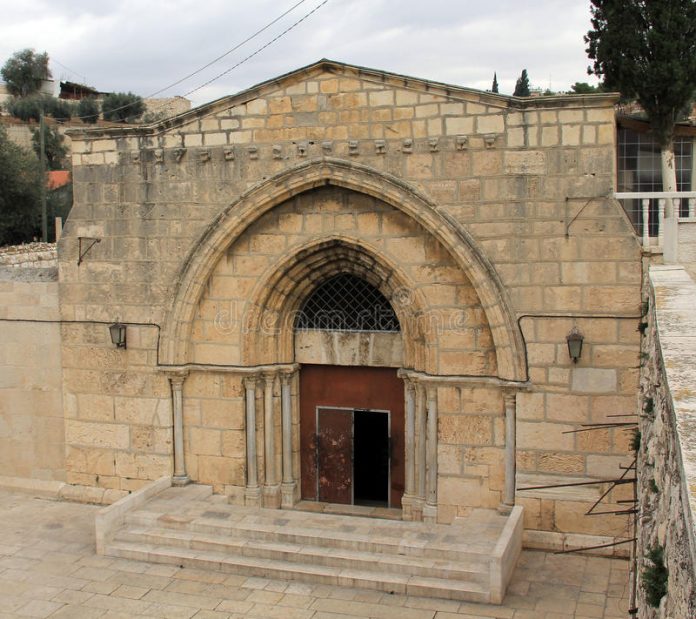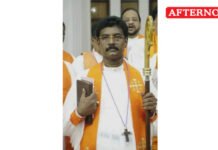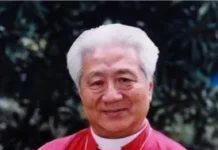The Greek Orthodox Patriarchate of Jerusalem and Primate Theophilos III, united with the synod, all the clergy and the faithful, issued a statement following yesterday’s “heinous terrorist attack” during the Sunday morning liturgy by “at least two Jewish extremists”.
The target was the Church of Gethsemane in Jerusalem, where the Tomb of the Virgin Mary is located, one of the holiest sites for Orthodox Christians.
The Patriarchate’s statement goes on to slam “the attempt to cause physical harm to Archbishop Joachim, who was leading the service, as well as the attack on one of the priests in the church”.
It equally “deplores this atrocious crime, which came at the time of Lent preparations for the Easter celebrations.”
For Jerusalem’s Greek Orthodox Church, this attack is a natural progression of the wave of hate speech and incitement to violence that is developing in Israel, especially from the country’s leaders, which is spilling over into society.
Attacks affect Christians, but also Muslims in a spiral of hatred, provocations, violation of the status quo, and a strategy designed to raise tensions that could lead to open conflict.
Local sources report that two Jewish extremists, from southern Israel, broke into the church of the Tomb of Mary yesterday morning, one of whom brandishing an iron bar.
The church is one the most important Orthodox places of worship in the Holy Land, a major destination for pilgrims, located in East Jerusalem.
The two men tried to destroy and deface sacred objects inside the building and physically attack the bishop and two priests who were celebrating the Sunday service. A priest suffered head injuries as a result of the assault.
The attackers were stopped by some worshippers who held them until the arrival of the security forces. In the afternoon, police confirmed the arrest of a 27-year-old from southern Israel, without providing further information about his identity.
Bilal Abu Nab, a vendor who works near the church, told AFP that the attack was carried out by two Jewish men, one wearing a yarmulke (skullcap) and the other a tzitzit (tassel).
This terrorist attack comes at a time of high tensions in the Holy Land, and for different reasons.
First, within Israel, tens of thousands of Israelis are still taking to the streets along with judges and magistrates to protest against a justice reform package pushed by the government led by Prime Minister Benjamin Netanyahu.
Secondly,), a visit by Israeli National Security Minister Itamar Ben-Gvir to the al-Aqsa Mosque compound (Temple Mount, al-Ḥaram al-Sharīf) is sparking clashes between Israelis and Palestinians – in the West Bank and Gaza – that could turn into a new intifada.
Lastly, Jewish extremists are increasing their violent acts against both Christians and Muslims, further fuelling sectarian tensions.
Before yesterday’s incident, the last episode occurred in early February, when the Church of the Flagellation was targeted, while at the start of the year, extremist groups desecrated a cemetery on Mount Zion and before that struck at other targets, including a church near the Upper Room or Cenacle on Mount Zion, the Basilica of Nazareth as well as other Catholic and Greek Orthodox sites.
In its press release, the Greek Orthodox Patriarchate notes that attacks against Christian holy places, property, heritage, and identity constitute a violation of international law.
They stress the need to respect religious freedom, a fundamental human right, urging the international community to provide security and protection to Jerusalem’s holy sites, especially to the Church of the Holy Sepulchre.



